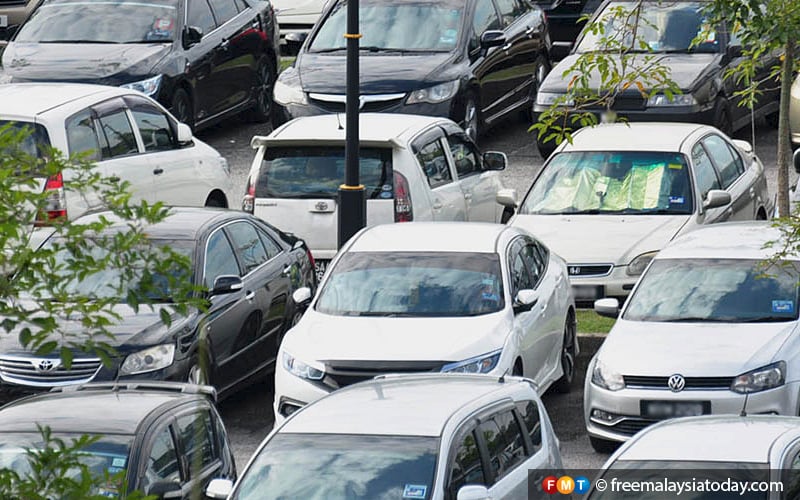10 habits that confirm you are a typical Malaysian
The fact that Malaysia is a melting pot of different faiths and ethnicities is a matter of national pride.
However, despite the sheer diversity of the population, there are some habits that almost every Malaysian has.
These habits are quirks almost certainly unique to Malaysians, and even when abroad, you can spot another Malaysian as soon as you notice these habits popping up.
For one, every alternating sentence should end with a “lah”, and insulting Malaysian food is one way to get bombarded with death glares.
What other habits make Malaysians surprisingly unique, you ask? Here are 10 of the most common ones.
1. ‘Malaysian timing’

Malaysians are notoriously incapable of good timekeeping. (Pixabay pic)
Have you ever arranged to meet with friends at a specific time? And even though you remind them countless times to be punctual, they proceed to arrive half an hour later?
That’s what most people call “Malaysian timing”. It’s not known why Malaysians generally have a bad sense of timekeeping, but it happens anyway.
Perhaps the generally laid-back attitude of most Malaysians contributes to this lack of urgency.
Also, whenever you call someone to enquire how much longer you will have to wait for them, never take their word for it.
“I’m nearly there” is the codeword for “I’m still at home.”
2. ‘Hi, Uncle/Auntie!’
Talk about having a big family! Malaysians have a strange habit of calling elderly men “uncle” and women “auntie”, even if they have no biological ties to each other at all.
It is a practice that is almost unheard of, especially in the West, where children are expected to address non-family members more formally.
Young Malaysians are taught to respect the elderly, and the terms, “uncle” and “auntie” are just the local way of showing said respect, whether it’s to the grocer or the hawker selling Ramly burgers.
3. Traffic busybodies
 Traffic crawls are mostly caused by gawking onlookers rather than the accident itself. (Bernama pic)
Traffic crawls are mostly caused by gawking onlookers rather than the accident itself. (Bernama pic)A traffic accident has happened on some highway and the affected vehicles have been pulled to rest on the emergency lane.
So why on earth is there a snaking line of vehicles stretching for kilometres? There’s nothing blocking the road after all, so what’s the hold-up?
Simple. Malaysians just have the need to slow down and gawk at roadside incidents, even if it’s as uninteresting as someone’s punctured tyre.
4. The hand of God
According to the Bible, Moses used a divine wooden staff to part the Red Sea and cross from Egypt to the Holy Land.
In Malaysia, however, you have no need for a staff to part through the sea of traffic; all you need to do is to hold up your hand.
Holding one’s hand up seems to have two meanings on Malaysian roads, the first being a request for oncoming traffic to stop.
The other meaning is often one of thanks, given from one motorist to another especially when an act of courtesy, like giving way, is displayed.
5. ‘Have you eaten?’
Malaysians love food and it is not surprising that food would be a large part of the everyday conversation.
Whenever families and friends happen to run into each other, the question of whether a person has eaten will almost always crop up.
It’s essentially an equivalent to “How are you?” and sometimes, it will lead to an invitation to dine together at the nearest hawker centre if one party has an empty stomach.
6. ‘Every centimetre of the road is a parking space.’
Residents of densely populated urban centres such as George Town, Kuala Lumpur, Petaling Jaya and Johor Bahru will always have to live with the never-ending issue of double parking.
Malaysians generally prefer to drive, even to nearby destinations, rather than walk or use public transportation, thus adding to road congestion.
As a result, double parking is a common sight especially in commercial areas, with more considerate motorists leaving their phone numbers on the windscreen while others simply don’t bother at all.
7. ‘Did you just say ‘free’?’
Planning on launching a promotional event for your new business? There is one sure-fire way of getting Malaysians to throng your store, even if they have never visited before.
Just make sure to print the word “free” in big letters on a banner, and you will certainly see a surge in customer numbers.
Malaysians don’t care for what they are buying, provided there’s a free gift that they can take home.
8. ‘Instructions are suggestions’
One of the most ironic scenes in life can often be spotted under municipal signboards warning against littering, with piles of rubbish underneath.
Malaysians can have a bit of a recalcitrant streak when it comes to instructions, and often seem to be selectively blind when it comes to signboards.
Little wonder why you can find smokers puffing away in no-smoking zones, men riding on women-only coaches and able-bodied motorists parking in disabled spots.
9. ‘What’s a queue?’

Orderly queues are unfortunately a rarity rather than a commonality.
In the average Malaysian school, students are drilled to queue in orderly lines before class begins, maybe to instill some form of discipline in them.
Unfortunately, by the time, they reach adulthood, queues are little more than inconveniences.
At train and bus stations, it is quite embarrassing to see passengers barging into the vehicle without giving time for disembarking passengers to leave.
10. ‘What shall we eat?’ ‘Anythinglah.’
The abundance of food in Malaysia is something of a blessing and a curse, with people generally being indecisive about where to have their next meal.
Some people make their decision based on pricing, others on proximity to where they are and few just let their stomachs decide.
Still, it doesn’t stop restaurants and cafes from being the most likely spot for people to meet and chat, over a round of drinks and possibly some snacks.














14 Comments
memang malaysian sangat..ekeke
ReplyDeleteThat's the uniqueness of Malaysians.
ReplyDeleteMemang typical malaysia ni hahaha. Nak nak no 1 tu, janji pukul berapa, datangnya pukul berapa.
ReplyDeleteInilah kita.
ReplyDeletemasa MCO ni, no. 9 tu dah improve..kt mana2 kena queue...huhu..
ReplyDeleteNo 1 tu more like Malays instead of Malaysians hahaha... and to add more pain tut tut tut... when you hear the statement... On The Way!!!... Yeah... like on the way la sangat kan hahahaha... used to catch a friend red handed with this statement hahaha
ReplyDeletenorma baharu cara pun dah baru kan
ReplyDeleteNO. 1 tu paling x suke sangat...
ReplyDeletecalling all instant noddles Maggy, some goes to ubat gigi.. all is colgate. :P
ReplyDeleteahahahaha very typical malaysian
ReplyDeleteKalau berkaitan masa, saya lebih suka menunggu orang dari orang menunggu saya. Rasa bersalah sangat kalau orang menunggu saya.
ReplyDeleteBab, uncle dan auntie tu, saya sedaya upaya untuk membahasakan mereka (bukan Melayu) sebagai pakcik, makcik atau cik/cek sahaja.
Hal parkir berlapis saya jarang hadapi kecuali dahulu semasa belajar di Shah Alam. Sekarang ni adapun di hospital.. 😅
the " free " part its just not me.. because i dislike crowd
ReplyDeletehaha how true
ReplyDeletehaha!! nombor 1 tu paling tak best. sila la amalkan punctuality. huhuhu~
ReplyDeleteThanks for leaving your comment. Please come again. I will visit your blog soon.